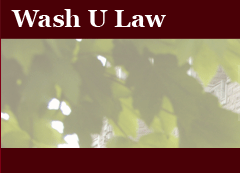Indigenous Peoples and Intellectual Property
Publication Title
Washington University Journal of Law & Policy
Abstract
Michael F. Brown’s Who Owns Native Culture? is a thoughtful exploration of the issues raised by intellectual property law and indigenous cultures. The book gives several detailed accounts of disputes, addressing such questions as copyright in the art of the Ganalbingu people in the Northern Territory of Australia and patent rights in pharmaceuticals derived from traditional knowledge of healing plants. It succeeds in drawing out many complexities and showing numerous perspectives. This Essay does not seek to review the book, beyond commending it as an intelligent and nuanced addition to the literature. Rather, this Essay looks specifically to some general conclusions the book draws about whether intellectual property law is a useful tool to protect indigenous cultures. Brown suggests that “judicious modification of intellectual property law” has a role to play. But much of the book argues against reliance on intellectual property, preferring negotiation on the basis of mutual dignity. Intellectual property law, in this view, threatens the public domain and is ill-suited in many respects for application to indigenous cultures. This Essay suggests a different way to frame the issue, in which intellectual property law, negotiation, and human rights precepts work together to address indigenous claims to heritage protection.
Recommended Citation
Lorie Graham and Stephen McJohn,
Indigenous Peoples and Intellectual Property,
19
Wash. U. J. L. & Pol’y
313
(2005),
https://openscholarship.wustl.edu/law_journal_law_policy/vol19/iss1/16
